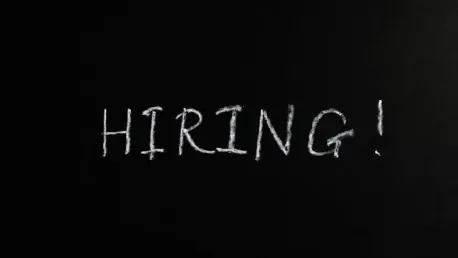As we edge closer to the year 2025, technology continues to evolve at a breakneck speed, and its influence on hiring practices is becoming increasingly inevitable and profound. Companies are embracing artificial intelligence (AI) to address recruitment challenges, enhance efficiency, and streamline human resources (HR) operations. Despite growing economic uncertainties, experts like Adrian Shackelford and Ben Eubanks highlight that recruitment will still face hurdles, making AI a valuable tool for both employers and job seekers. This dual-edged impact of AI on hiring processes necessitates a deeper understanding of the opportunities and challenges it brings to the industry.
Economic Concerns and Recruitment Challenges
Adrian Shackelford emphasizes that even amidst economic concerns, the struggle with recruitment will persist, compelling companies to adapt and find innovative solutions. One such approach is focusing on internal promotions and leadership development, which can lead to improved employee retention and a more efficient hiring process. By nurturing existing talent, firms can potentially reduce the time and cost associated with external recruitment. Ben Eubanks observes an increase in job postings for recruiters, suggesting that while businesses are eager to expand their workforce, the hiring pace may be influenced by external factors such as political climates and upcoming elections.
In this uncertain economic landscape, companies must balance their hiring aspirations with pragmatic strategies that leverage internal resources effectively. Firms are increasingly recognizing the importance of developing their internal talent pool to bridge the gap between vacancies and qualified candidates. By doing so, they not only mitigate the risks associated with intense external market conditions but also foster a more cohesive and loyal work environment. This approach requires a robust framework for identifying, training, and promoting leaders from within, enhancing overall organizational resilience in the face of recruitment challenges.
AI Tools for Job Seekers and Its Impact
On the other side of the recruitment spectrum, job seekers are turning to AI technologies such as LazyApply and LoopCV to boost their chances of securing employment. These AI tools enable candidates to apply for numerous positions simultaneously, automating the application process and potentially increasing their visibility in the job market. However, this convenience for job seekers presents a challenge for recruiters as it leads to an overwhelming influx of applications. The sheer volume of AI-generated applications can clog recruiters’ inboxes, making it difficult to identify genuinely qualified candidates and slowing down the screening process.
Despite the initial allure of AI-assisted applications, the success rate of such mass submissions is often low. Recruiters face the additional challenge of distinguishing AI-generated content from authentic applications, further complicating the hiring process. The misuse of AI extends to more concerning practices, such as candidates creating deep fakes for video interviews or generating automated responses to interview questions. These tactics undermine the integrity of the recruitment process and pose significant obstacles for recruiters who need to accurately assess a candidate’s qualifications, skills, and cultural fit within the company. Thus, while AI can provide job seekers with powerful tools to enhance their job search, it simultaneously introduces complexities that recruiters must navigate.
AI’s Role in HR Departments
HR departments, however, are not left behind in the AI revolution. They can harness AI to enhance their recruitment strategies beyond simply sorting through an avalanche of applications. AI tools are increasingly being used for more targeted and in-depth candidate searches, enabling HR professionals to identify candidates with very specific experiences and qualifications. For instance, AI can help pinpoint individuals who have held executive roles in rapidly growing companies, making the candidate selection process both precise and efficient. By leveraging AI in this manner, HR departments can significantly reduce the time spent on initial screening, allowing them to focus their efforts on more strategic aspects of recruitment.
The integration of AI into HR operations also holds the promise of transforming the way companies approach talent acquisition. By using AI to analyze vast amounts of data, HR professionals can gain deeper insights into candidate pools, identify emerging trends, and make more informed decisions. Moreover, AI-powered tools can assist in writing job descriptions, ensuring they are inclusive and free of unconscious bias. These advancements not only enhance the efficiency of recruitment processes but also contribute to building a more diverse and equitable workforce. As AI continues to evolve, its role within HR departments is expected to grow, bringing about significant changes in how companies attract and retain top talent.
The Future of AI in Recruitment
As we move closer to 2025, technology is rapidly advancing, significantly affecting hiring practices. Companies are increasingly adopting artificial intelligence (AI) to tackle recruitment challenges, boost efficiency, and streamline human resources (HR) operations. Despite the persistent economic uncertainties, experts like Adrian Shackelford and Ben Eubanks emphasize that recruitment will continue to face obstacles, making AI an invaluable asset for both employers and job seekers. This dual-edged effect of AI on hiring processes necessitates a more comprehensive understanding of the opportunities and challenges it presents to the industry. AI can help identify the best candidates swiftly, reduce biases in the hiring process, and allow HR professionals to focus on more strategic tasks. However, the reliance on AI also brings concerns such as potential privacy issues, the need for proper data management, and the possibility of over-reliance on machines at the expense of human judgment. Overall, the growing integration of AI in recruitment marks a transformative shift, demanding adaptation and vigilance from all stakeholders in the hiring landscape.









